 | « Back to article | Print this article |
The 40-day period marks the harshest phase of the winter in the Kashmir valley.
Photographs: Umar Ganie
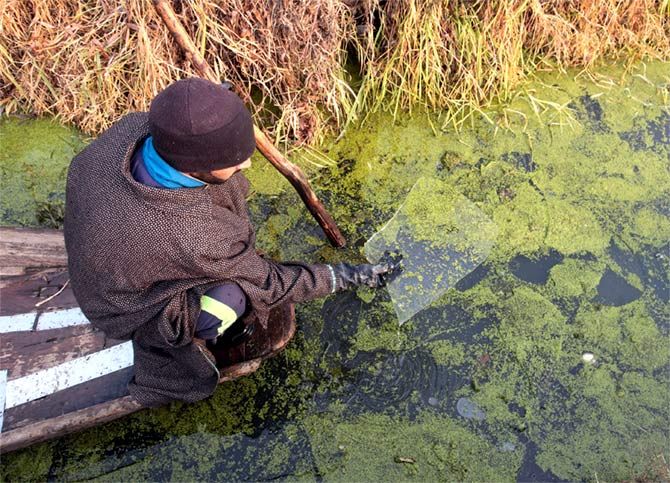
'Chillai-Kalan' -- the harshest 40-day period of the winter in Kashmir -- began on Wednesday with the mercury dipping to the season's record low at several places including Srinagar which experienced a six-year-low night temperature in the month of December.
The Kashmir valley and Ladakh have been hit by severe cold as the night temperatures across the division, except Pahalgam and Gulmarg, dropped to the season's lowest, an official of the meteorological department said.
The mercury in Srinagar plunged further the freezing point to settle at minus 6.5 degrees Celsius -- a degree below the previous night's minimum of minus 5.5 degrees Celsius.
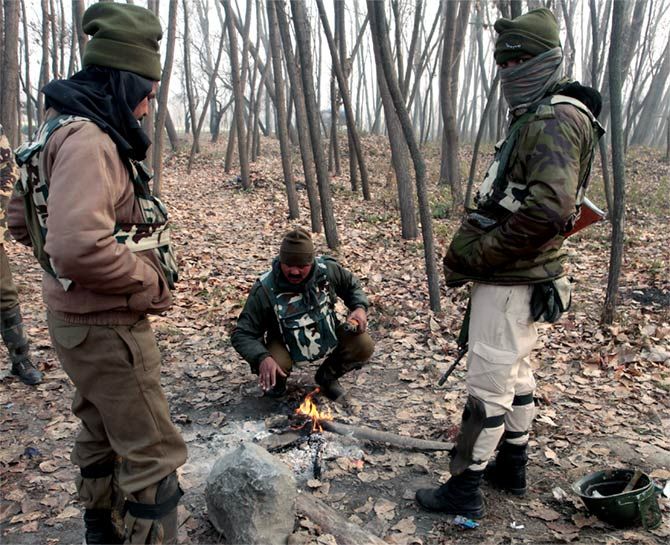
This was the coldest night of the season so far in the state's summer capital and the mercury was at a six-year low for this month of the year.
The city had recorded minus 6.6 degrees Celsius on December 27, 2010.
The all-time low recorded in December in Srinagar is minus 12.8 degrees Celsius on December 13, 1934.
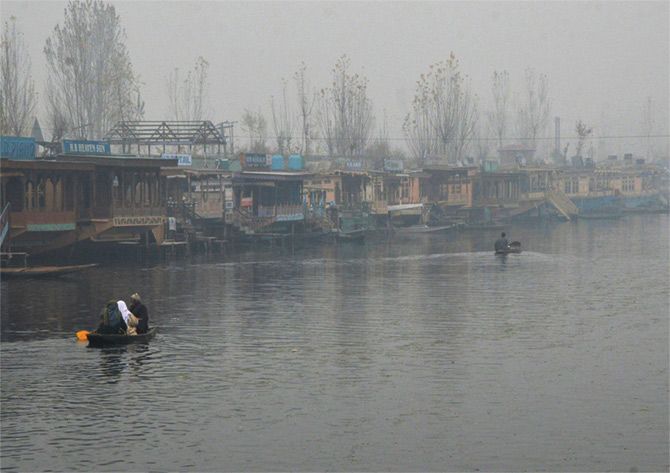
The cold wave resulted in freezing of some water bodies, including the fringes of the famous Dal Lake in Srinagar, and residential water supply pipes.
Leh, in Jammu and Kashmir's Ladakh region, also recorded the coldest night of the season as the mercury there settled at a low of minus 14.9 degrees Celsius, down from the previous night's minus 14 degrees Celsius.
Leh was the coldest recorded place in the state.
The mercury in nearby Kargil town settled at a low of minus 11.4 degrees Celsius -- which is the season's lowest so far there.
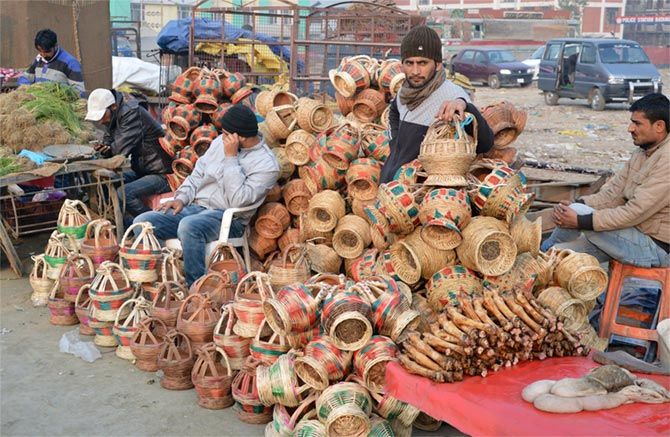
Qazigund -- the gateway town to the Kashmir calley -- also experienced the coldest night of the season.
The mercury in the town settled at a low of minus 5.6 degrees Celsius compared to minus 4.4 degrees Celsius on Tuesday.
The north Kashmir town of Kupwara recorded a low of minus 5.5 degrees Celsius against minus 4.8 degrees Celsius the previous night.
Kupwara also registered the season's lowest night temperature.
Kokernag town in south Kashmir recorded a low of minus 3.8 degrees Celsius, the lowest recorded temperature of the season there.
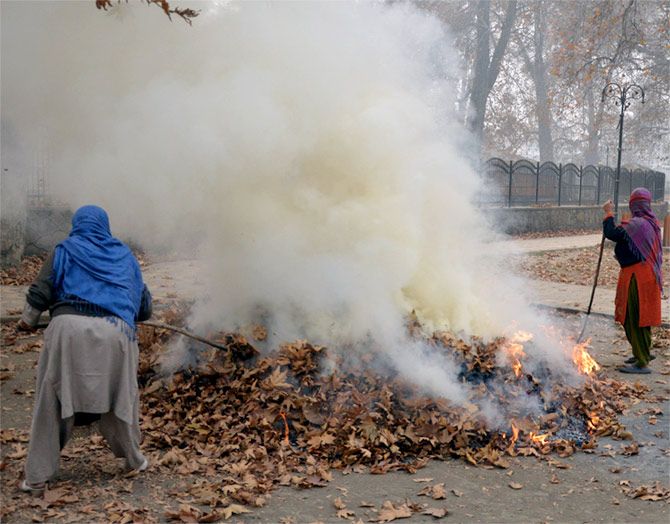
Pahalgam in south Kashmir -- which serves as a base camp for the annual Amarnath Yatra -- recorded a low of minus 6.9 degrees Celsius, down from minus 6.2 degrees Celsius 24 hours earlier.
Pahalgam was the coldest place in the Kashmir valley.
The mercury at the ski resort of Gulmarg, in north Kashmir, settled at a low of minus 2.2 degrees Celsius, compared to Tuesday's low of minus 3 degrees Celsius.
The met department has forecast mainly dry weather in the state over the week ahead, which could result in further drop in the night temperature.
'Chillai-Kalan' -- considered the harshest period of winter, when the chances of snowfall are most frequent and maximum and the temperature drops considerably -- began on a dry note.
It ends on January 31, but the cold wave continues even after that.
The 40-day period is followed by a 20-day long 'Chillai-Khurd' (small cold) and a 10-day long 'Chillai-Bachha' (baby cold).